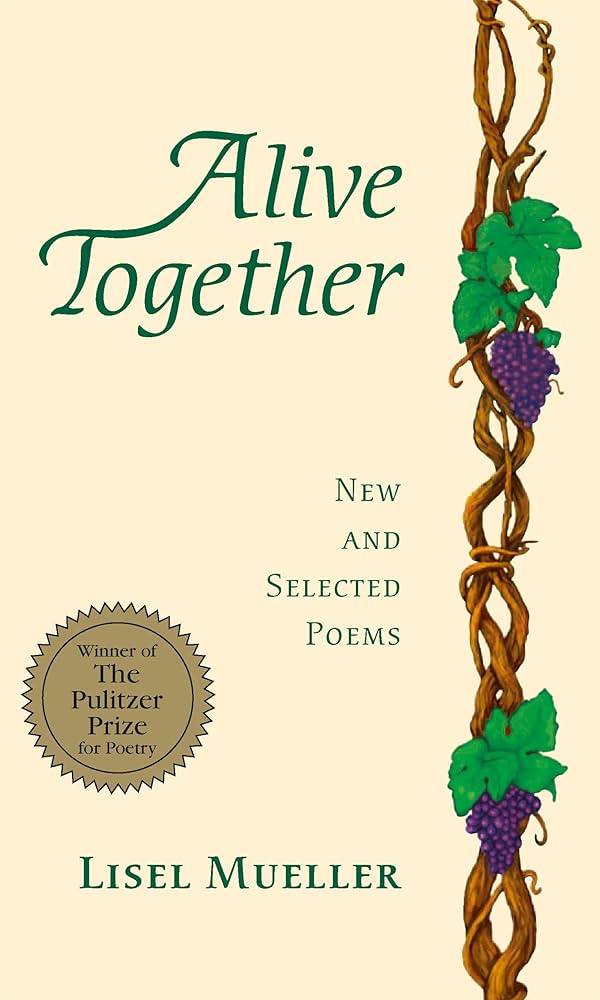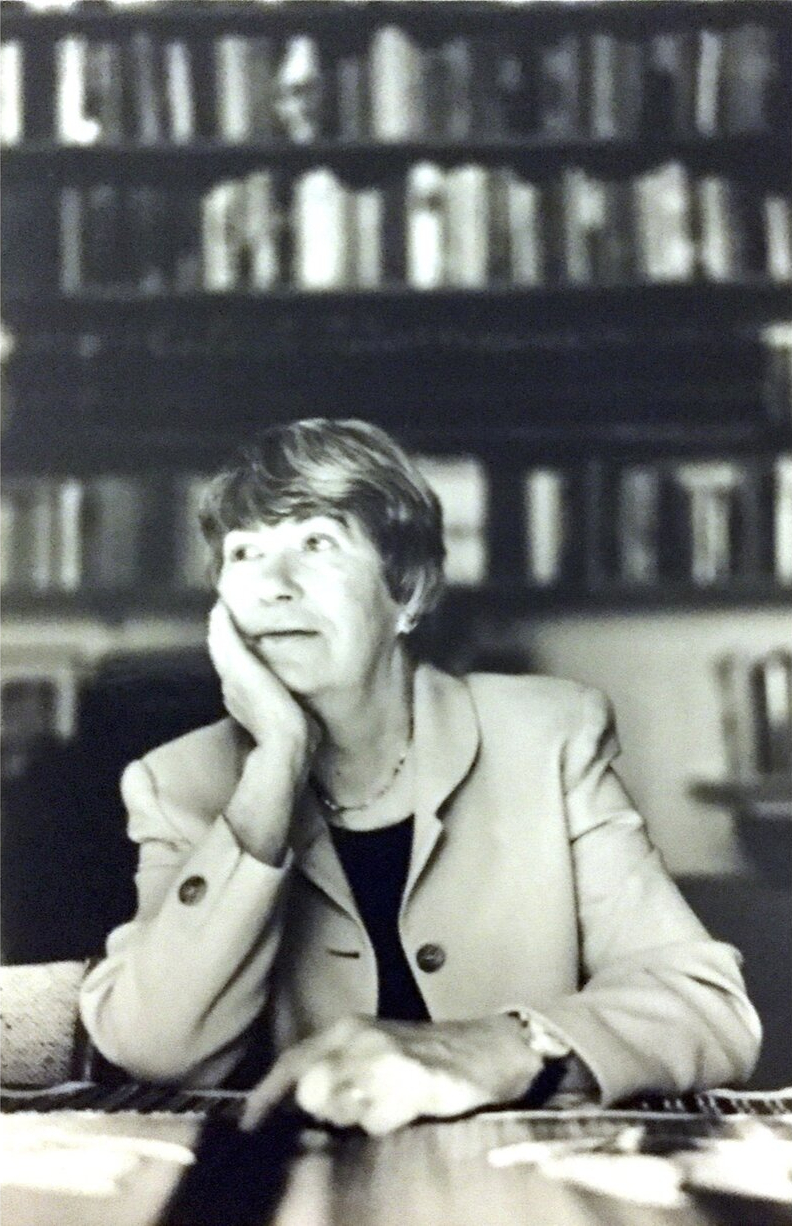Published July 15th, 2024
Review
by Faith Manalili
It has been more than a hundred years since the poet and teacher Lisel Mueller was born in Hamburg, Germany, in 1924. Her work, which spans nine collections, has amassed several awards and still resounds today. Mueller’s Pulitzer Prize winning collection Alive Together: New and Selected Poems (1996) traverses a personal history of childhood, migration, love, loss, grief, and nostalgia across the Atlantic. At once brilliant and reflective, these poems prompt the reader to think about our existence, both in the past and present.
Mueller’s work is perhaps most notably a meditation on mortality. As an epigraph, Mueller offers a short poem which comes to shape the rest of the collection:
How swiftly the strained honey
of afternoon light
flows into darkness
and the closed bud shrugs off
its special mystery
in order to break into blossom
as if what exists, exists
so that it can be lost
and become precious

This poem, “In Passing,” holds that ephemerality imbues our life with meaning; that its ineluctable end makes it all the more special. But so does the unlikely chance that we are alive in the first place. In the titular poem, “Alive Together,” Mueller hones in on the wonder of our random and improbable existence: “[s]peaking of marvels, I am alive / together with you, when I might have been / alive with anyone under the sun.” She then lists the endless possibilities of other lives she could have lived in various places. Mueller’s poem beautifully asserts that, in the ever-growing, vast expanse of time and space, existing together in the present is something truly meaningful.
Other than the acute awareness of our fleeting existence, the paths we come from and our memory of them are something that we carry with us in the present. Mueller illustrates this in “Place and Time.” This poem about a man whose hometown has been destroyed speaks of the power of memory. It culminates in the following lines:
whatever he remembers
is durable and instantly
retrievable and lit
by a sky or streetlight
which does not change. That must be why
he sounded casual about the mindless wreckage
Here, the speaker posits that the man’s memory allows him to reconcile with the present wreckage. This idea is further dealt with in the poem “Pillar of Salt,” which is written in memory of Mueller’s grandparents. In it, amid destruction and loss, she remembers “family happiness / in random sunlit places.” In “My Grandmother’s Gold Pin,” Mueller invites the reader to ponder the importance of personal memorabilia and their power to evoke old memories. Again, what is said here is that fond memories help us persevere. After all, “love grows by what it remembers of love,” Mueller writes.
Her own personal history often serves as the backdrop for her poems. In her list poem “Curriculum Vitae,” she recounts her life in different stages. It starts from her childhood in Germany, which later becomes “struck by history more deadly than / earthquakes or hurricanes.” This is followed by her migration to the midwestern U.S., a newfound love, and then the loss of her mother. Now, in “the glorious, difficult, passionate / present,” one can only persevere.
In these poems, there is a recognition of the “threadbare heart of the world,” and all the grief, loss, and suffering it holds. Yet despite this, Mueller does not succumb to despair, but instead veers on the side of hope and persistence. This is shown in the poem “On Reading an Anthology of Postwar German Poetry”:
I know enough to refuse to say
that life is good,
but I act as though it were,
and skeptical about love, I survive
by the witness of my own

Despite the sadness that underscores Mueller’s work, there is also playfulness. “Attention is the beginning of devotion,” the late poet Mary Oliver once wrote, and this sentiment echoes in Mueller’s poems. In this collection there is a sense of momentousness in the objects of everyday life. Refusing mundanity, Mueller regards them with renewed awe and appreciation. In her poem “Midnight,” the speaker observes and imagines the objects in the room to sing and dance — she calls these the “magic animations.” Likewise, in the poem “Things,” the speaker remarks the following: “We […] hung tongues inside bells / so we could listen / to their emotional language.” This playfulness makes Mueller’s verse more nuanced.
Another thing that strikes me is the Proustian imagery of Mueller’s poetry. Her gentle, lyric voice “pulls you back into childhood,” as she writes in the poem “Sometimes When the Light Strikes,” and many of her descriptions of scenes from childhood feel like a comforting, warm embrace. “Home” is described as “a room where a crackling fire / ripens late apples in the window sill,” and “hope” is likened to a “puppy that bounds ahead.”
Since the auditory senses are so bound up with memory, it is no surprise that music is another theme that features frequently in Mueller’s collection. She writes of Schubert’s impromptus, Strauss’s operas, the silky voice of Billie Holiday, and even birdsong. In one poem, the speaker attests to the Proustian power of music, saying that it is “giving [them] back / [their] prewar childhood city.”
Deeply contemplative and enduring, Alive Together is truly Mueller’s cadenza. In it, she skillfully shows how history affects our lives and how we go about living. Amidst all the grief and hurt in the world, Mueller bids us to “[w]atch for occasional bits and bubbles of light.”
Nationality: Swedish
First Language(s): Swedish
Second Language(s):
English,
Tagalog
Supported by:

